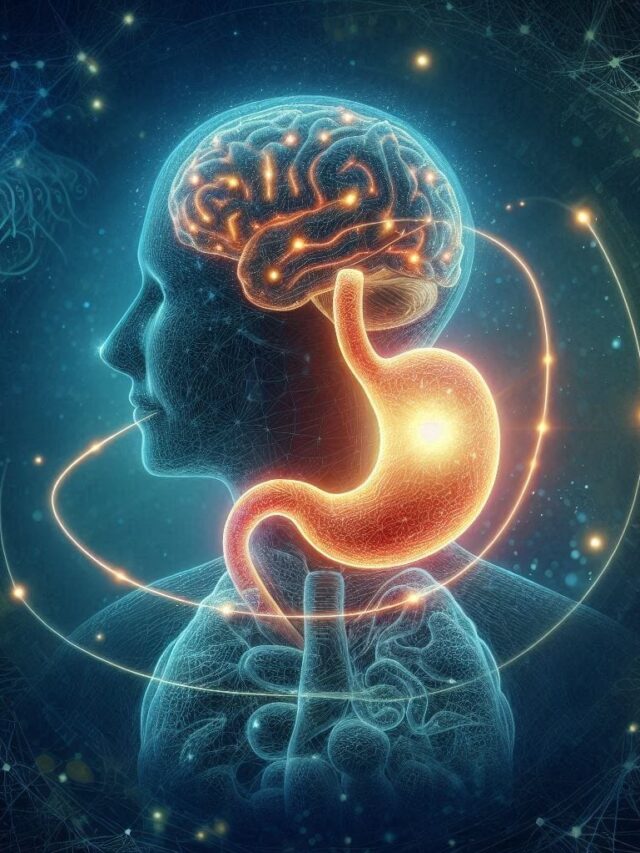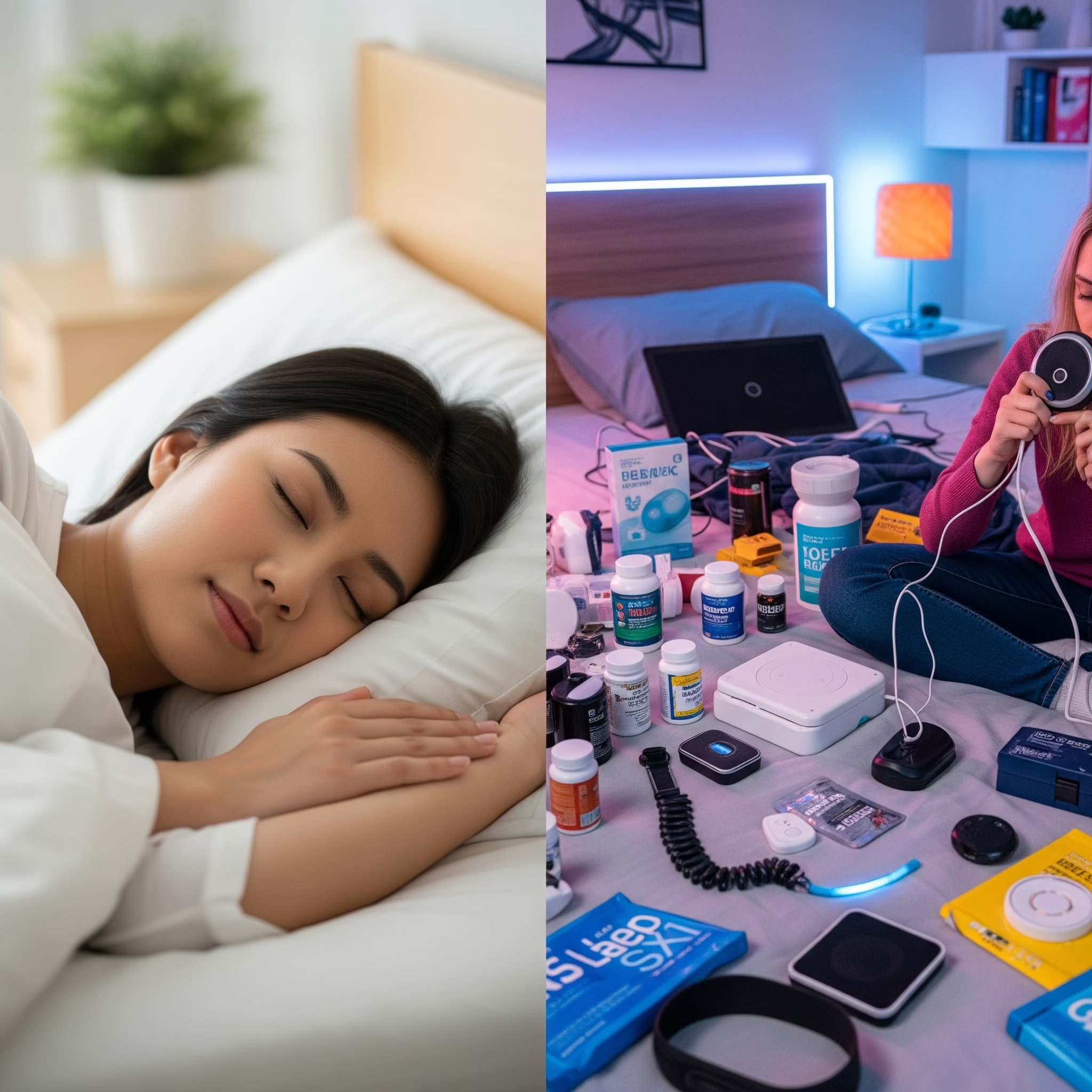You know that feeling when you’ve tried everything to get better sleep—different pillows, apps, herbal teas—and you’re still lying there at 2 AM scrolling through your phone?
Well, there’s a new trend taking over TikTok that promises to fix all your sleep woes. But here’s the thing: sleep experts aren’t exactly thrilled about it.
What Exactly Is This “Sleepmaxxing” Thing?
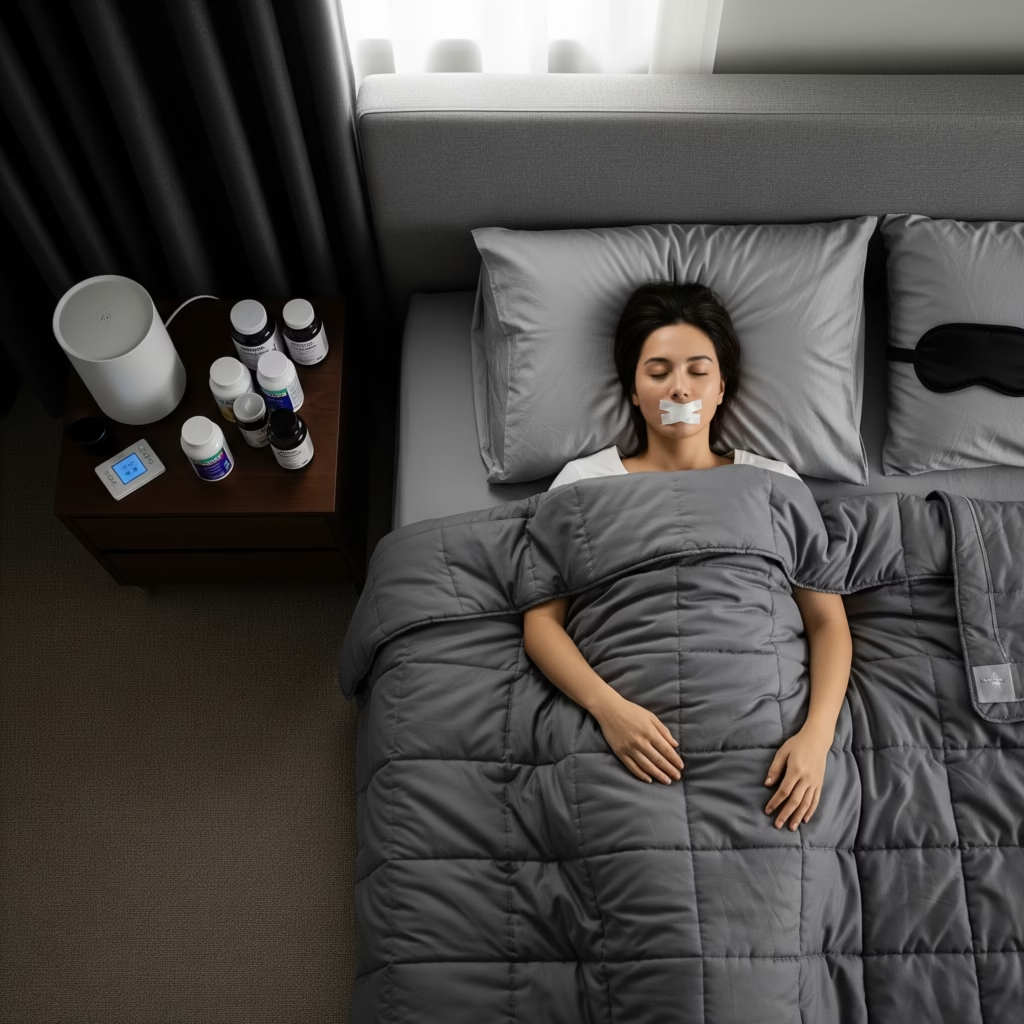
Sleepmaxxing is basically the sleep world’s answer to optimization culture. The term—which plays off “looksmaxxing,” another TikTok trend about enhancing appearance—describes the practice of using multiple sleep strategies simultaneously to maximize both the quality and quantity of your nightly rest.
Think of it as sleep’s version of throwing everything at the wall to see what sticks.
The trend has exploded on social media, with millions of videos showcasing elaborate bedtime routines that would make a spa retreat look minimalist.
We’re talking about people who tape their mouths shut, pop multiple supplements, sleep under weighted blankets while wearing eye masks, and track every minute of REM sleep like they’re training for the Sleep Olympics.
The Sleepmaxxing Toolkit: What People Are Actually Doing
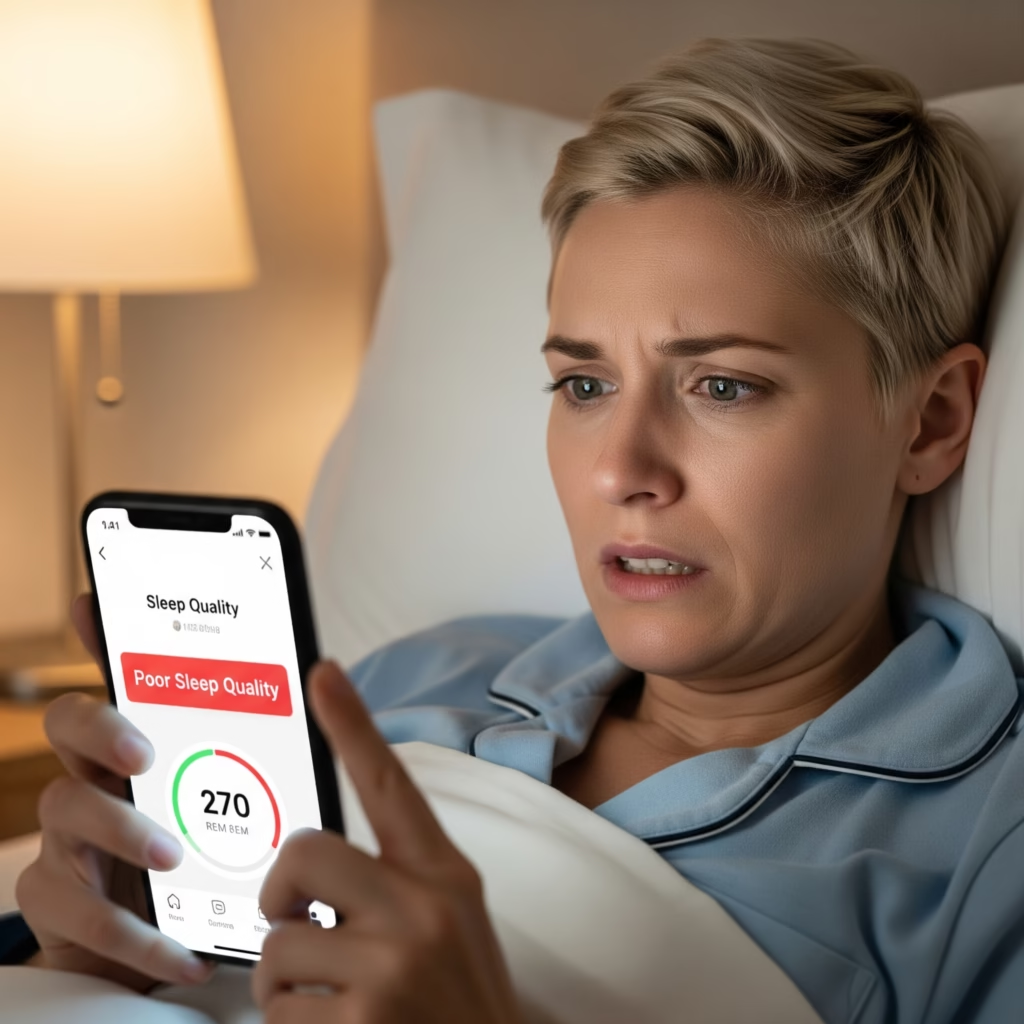
Let me paint you a picture of what a typical sleepmaxxing routine might look like. Picture this: someone takes magnesium and melatonin supplements an hour before bed, dims all the lights, puts on blackout curtains, tapes their mouth shut to encourage nasal breathing, covers themselves with a weighted blanket, and falls asleep to white noise while their sleep tracker monitors every toss and turn.
Some of the most popular sleepmaxxing practices include reducing screen time before bed, keeping the bedroom cooler, taking various supplements, using mouth tape, and creating elaborate wind-down routines.
There’s also something called “pineal gland meditation” and drinking magnesium-laced “that have gone viral.
Honestly? Some of this stuff sounds pretty reasonable.
Reducing caffeine intake and limiting blue light exposure are backed by solid research. But when you start combining everything at once, that’s where things get complicated.
What Science Actually Says About These Hacks
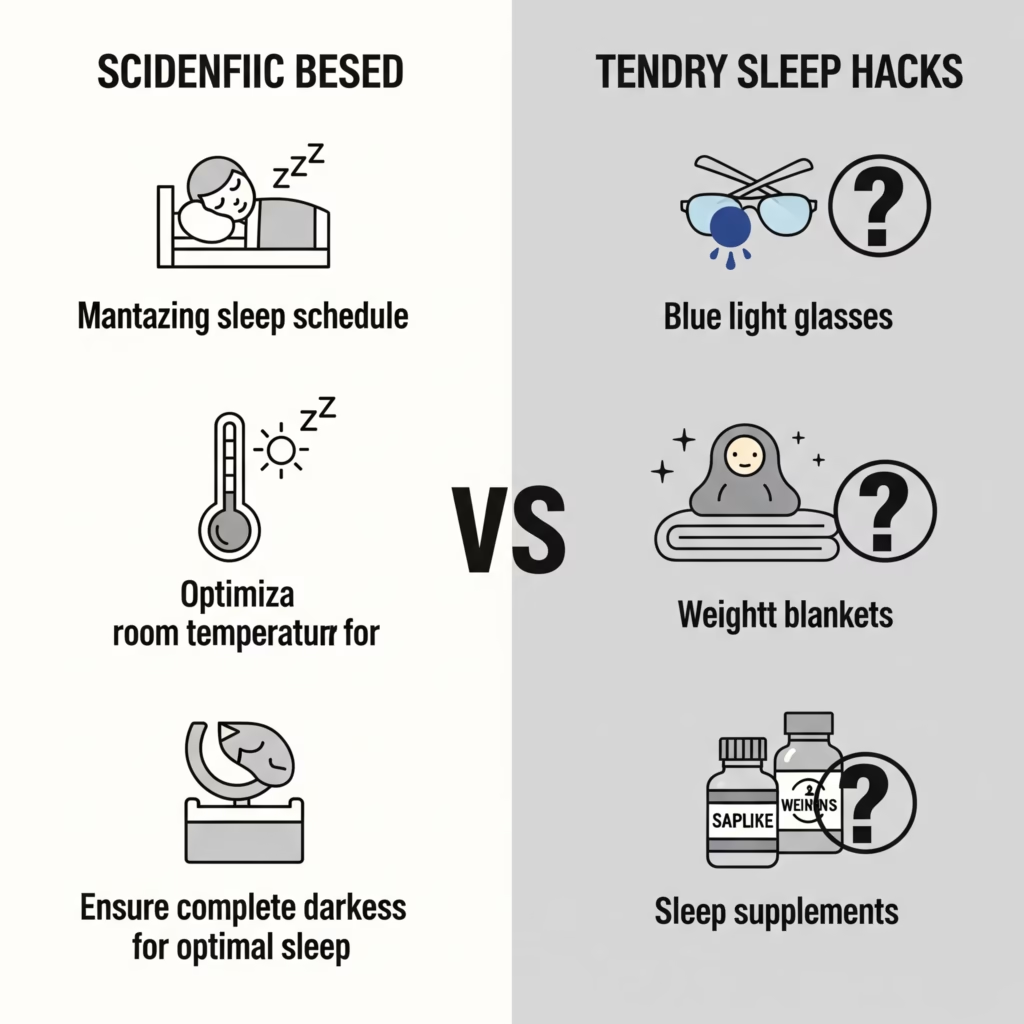
Here’s where it gets interesting—and a bit messy. Some sleepmaxxing practices do have legitimate scientific backing. White noise, for instance, can genuinely help block background sounds and help people fall asleep faster.
. Weighted blankets have shown promise for people with anxiety or sensory issues, helping them feel more relaxed.
Magnesium supplements can help regulate melatonin and activate your parasympathetic nervous system, which keeps you calm. And yes, keeping your bedroom cooler is a tried-and-true sleep hygiene practice that most sleep specialists recommend.
But—and this is a big but—many of the trendy practices lack solid research. Take mouth taping, which involves literally taping your mouth shut to force nasal breathing.
Dr. Martina Vendrame, a sleep medicine specialist, calls it “mostly a fad” with insufficient research behind it. More concerning? It’s not safe for everyone, especially people with certain medical conditions.
The Hidden Danger: When Sleep Optimization Becomes Sleep Obsession

Here’s something that might surprise you: being too focused on perfect sleep can actually make your sleep worse. There’s even a term for it—orthosomnia, coined by researchers who noticed patients becoming unhealthily obsessed with achieving perfect sleep metrics.
Dr. Sabra Abbott from Northwestern University first identified this phenomenon when patients started coming in with sleep issues that didn’t fit typical insomnia patterns.
These folks were so dependent on their sleep tracking devices that they were “actually destroying their sleep” because they weren’t measuring up to what their tracker considered ideal.
The irony is pretty striking, isn’t it? People trying so hard to optimize their sleep that they end up lying awake worrying about their sleep scores. As Dr. Beth Oller puts it, “Being obsessed with sleep can lead you to get less sleep”.
The Psychology Behind the Trend
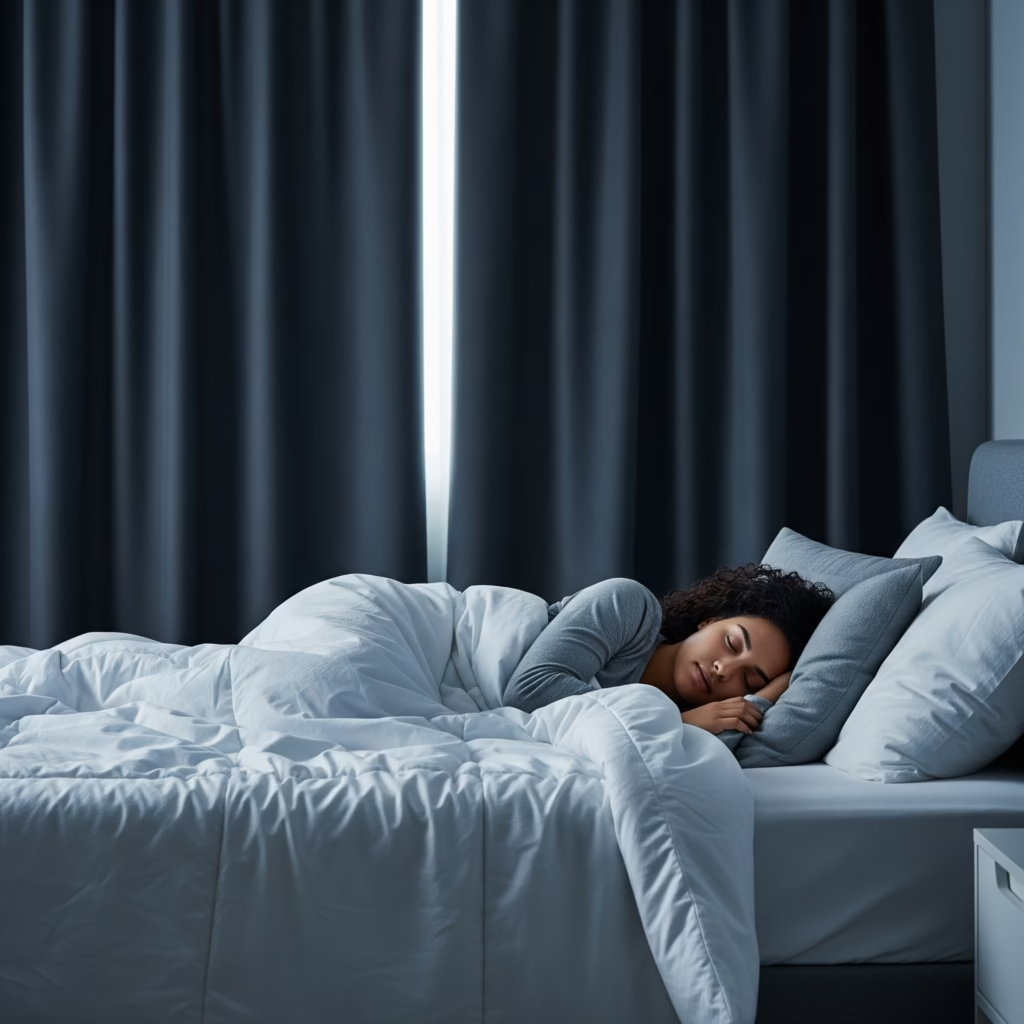
You know what’s really driving this trend? Our collective exhaustion. About 39% of adults in the U.S. don’t get adequate quality sleep, so it makes sense that people are desperate for solutions. The pandemic shifted many people’s priorities toward self-care, and sleep became part of that focus.
There’s also something appealing about the idea that if we just do enough things right, we can hack our way to perfect rest.
It feeds into our optimization culture—the same mindset that has us tracking steps, calories, and productivity metrics.
But sleep specialist Dr. Neil Stanley isn’t buying it. He calls sleepmaxxing an unhealthy “obsession” that’s often counterproductive, warning that “the worry about getting good sleep actually makes sleep worse”.
A Smarter Approach to Better Sleep

Look, wanting better sleep isn’t wrong. Sleep is fundamental to your health and well-being—adults need 7 to 8 hours of quality sleep for optimal function.
But maybe we don’t need to turn our bedrooms into sleep laboratories.
Instead of trying every viral hack simultaneously, Dr. Suhaib Haq suggests focusing on evidence-based basics.
Start with one or two proven strategies: maintain a consistent sleep schedule, create a cool, dark environment, and limit caffeine late in the day.
The NHS recommends focusing on better diet and exercise, along with meditation and mindfulness for improved sleep. These aren’t as flashy as viral TikTok hacks, but they’re backed by decades of research.
The Bottom Line
Sleepmaxxing taps into something we all want—better, more restorative sleep. And honestly, some of the attention on sleep hygiene is long overdue. But when wellness trends become elaborate productions that require multiple products and extreme measures, we might be missing the point.
Sometimes the best sleep hack is the simplest one: consistent bedtime, comfortable environment, and letting go of the pressure to achieve perfect sleep metrics.
Because here’s the thing—sleep isn’t a performance to be optimized. It’s a natural process that works best when we’re not overthinking it.
Maybe instead of sleepmaxxing, we should try something radical: sleep acceptance. Your 7.5 hours of decent sleep might be worth more than someone else’s “optimized” 8 hours spent worrying about sleep scores.
